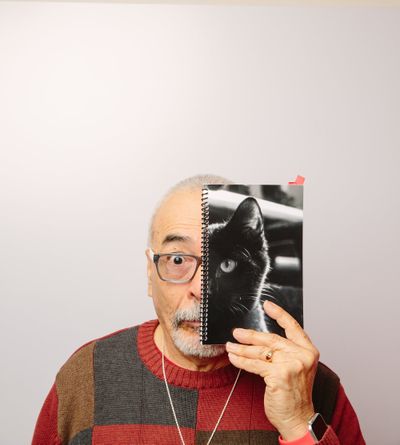The US poet laureate on what America should be reading now

Juan Felipe Herrera, 68, is the son of immigrant farmworkers from Mexico. He was born in California and lives there with his wife and children.
Q: Is this a good time to be a poet?
A: It’s always a good time to be a poet. At this particular moment the world is going through major shifts. Major political shifts, social shifts, cultural shifts. And it’s good to observe the world, to respond to it. So this is a great time, not necessarily for us as poets to fill our books with “great” observations. It’s more like responding and providing, in many ways, consolation.
Q: How do you see your role as U.S. poet laureate?
A: It’s kind of a multi-role. I have a great time at the Library of Congress with the team there that assists me. Without them I’d just be a washing machine walking down the street and falling apart. So I want people to connect with the Library of Congress. It’s for you, it’s all for you. My other role is to remind the American people that they have the most worthy, significant, beautiful, brilliant voice. And without it what would our lives be? We need it. Silence erodes our lives. It erases our lives. I want them to ask questions. To speak up. To ask what you feel is most important to you right now.
Q: Is there a time when you feel least like a poet?
A: Oh, a poet is all of us in a way, so it’s hard to say there’s a time when you’re not a poet. A poet means you’re human. It really means you’re looking around and responding to reflections. Reflections of things that stop you cold, of things that pull you in.
Q: You wrote a poem called “Don’t Worry, Baby” that includes the line, “I worry about people who say, ‘Don’t worry, Baby.’ ” Are you worried?
A: Yeah, I get worried. I have a degree in worrying. I work on it as much as I can, and writing keeps me away from all that stuff. All the itchy social ills. When I’m writing, I kind of get calmer. When I write, all is well. That’s what I find very positive. I find a lot of peace. But yeah, I’m a worrywart.
Q: Your parents were migrant workers. What would they think of you becoming the poet laureate?
A: My father passed away when I was 16 and my mother when I was 36. My mother was the one who encouraged me. Sang songs since I was a child. Recited poems to me. She liked to stand up and applaud and smile. She would be super thrilled and happy. My father, he was a hardcore worker of the earth, really. He would wonder how on Earth I could do this without working in the blistering heat. What are you doing? Put your hands in the earth, come on! You’re using a pen? Wow, that’s incredible. But he’d probably look at me and smile.
Q: We’re in this turbulent time, and America feels fractured. Is there a poem that would be particularly useful for our country to read right now?
A: Well, for sure [Walt] Whitman’s “Song of Myself.” I would also read poems by the great Chinese poet Bai Juyi. Quiet observations of nature and self. And I would read “Memory Foam,” a book of poems by Adam Soldofsky. Such a quiet, personal, deep, philosophical, unflinching, peaceful voice.